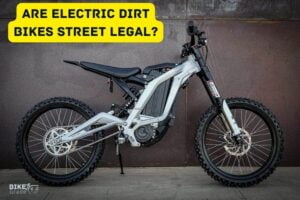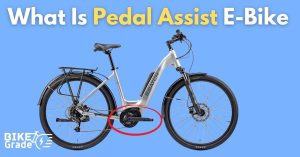Are E-bikes Street Legal? Yes!
Yes, e-bikes are street-legal. In most countries, e-bikes are treated as regular bikes. Even if you check in with the local authority, there might be restrictions on e-bikes for entering certain public parks but e-bikes have access to every other street.
Being street-legal doesn’t mean you won’t have to follow any rules, you must follow the speed limit. For most e-bikes, the speed limit is 15 to 20 mph. Following the speed limit ensures the safety of both pedestrians and other bikers.
What Does Street Legal Mean?
Street legal is a term used to define any vehicle matching all the rules and regulations set by road and transport authorities and having access to roadways.
For different vehicles, being street-legal needs to fit different criteria. You may need a signal light, airbags, and other safety features. But the rules for e-bikes are quite flexible.

In most countries, an e-bike doesn’t need any specific registration, insurance, and license. All 4 classes of e-bikes are street-legal in most places but for parks and trails, you may face restrictions and may have to rely on class 1 and class 2 e-bikes (max speed 20 mph).
The Legality Of Electric Bikes: What you need to know
Depending on where you live and what road you pick to ride, the legality of the electric bike may vary.
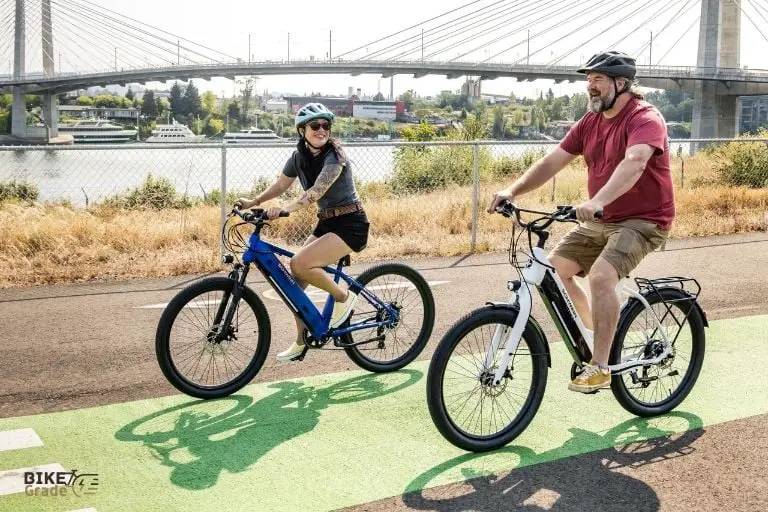
Watch Video: E-bikes and the Law
E-bike Classification And Why It Matters
Ebike classifications are based on their top speed and wattage capacity. There are 4 classes of e-bikes, class 1 e-bike will be paddle assist, 20 mph top speed, 250-watt capacity, and no throttle attached.
Class 2 e-bikes will have a 20 mph top speed, 250 to 750-watt capacity, and may or may not have a throttle; class 3 e-bikes will have a top speed of 28 mph, 750-watt capacity and will definitely have a throttle attached; and lastly the class 4 e-bikes, top speed more than 30 mph, more than 1000 watt capacity.
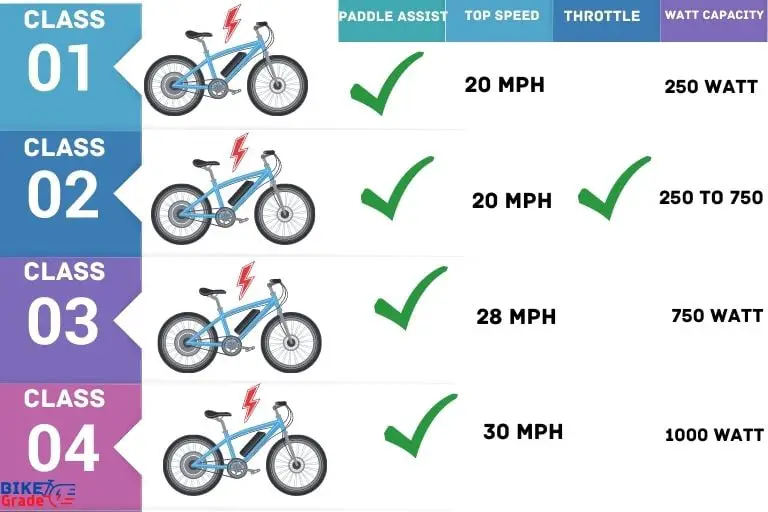
So different classes mean different top speeds and capacities but why does it matter?
Let’s imagine a scenario, you are walking or riding a regular bike on the road and a car or motorbike enters your lanes ignoring the traffic rules and driving at an enormous speed, there is a high chance that it will only lead to a disastrous ending.
But if you can put restrictions on cars from entering the bike path then it won’t be a threat to pedestrians and bikers.
Now with an electric bike, you can easily achieve more than 30 mph speed but a pedestrian might have a 2 to 5 km per hour speed and a regular bike will have a 10 to 15 mph speed.
If you put restrictions on electric bike access to bike paths or ensure that e-bikes are manufactured in a way that they pose no threat to others for their speed then you can have the best outcome.
Ebike classes were introduced to ensure a safe riding experience and help the road & transport authority efficiently manage and regulate traffic rules.
How Does Texas Define What An Electric Bike Is?
In the texas transportation code, an e-bike is defined as an electrically assisted bike and is treated as a regular bicycle also it may have a motor capacity of fewer than 750 watts. There isn’t any need to register your e-bike in Texas. You won’t need any specific license or insurance for riding the e-bike.
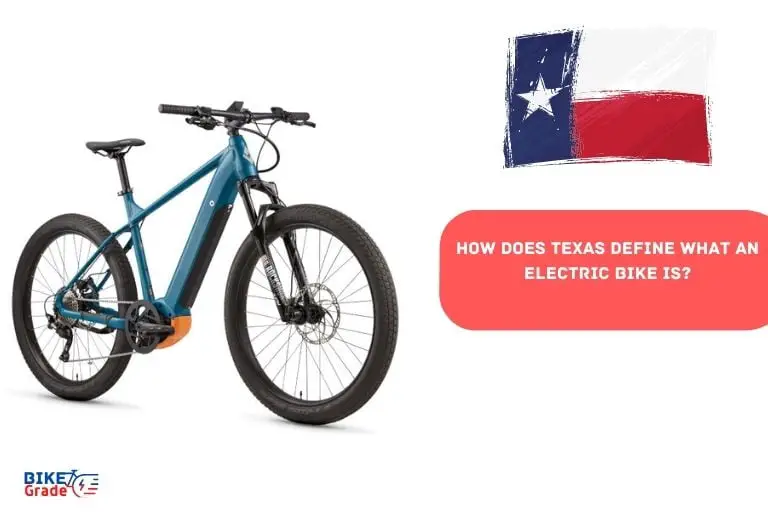
The only thing that might be of concern is the age limit, you need to be at least 15 years old to ride a class 3 e-bike. The rules regarding wearing a helmet are also quite flexible. As long as you have class 1,2 or 3 e-bikes, you can enjoy riding them anywhere you want.
States That Require A Different License For E-bikes
Total of 7 states in America where you will need to register your e-bike and need to have a special license to ride your electric bike.
The name of the states are
States That Have No Licensing Requirements For Ebikes
Among 50 states of the United States of America, only 7 states where will need a license to operate an e-bike but for the rest of the 43 states, you won’t need any specific license for an e-bike.
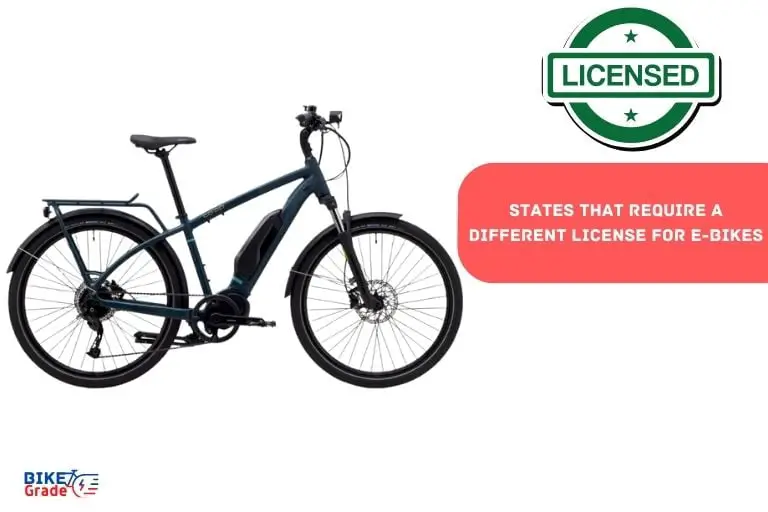
The name of the 43 states that don’t require any license for e-bikes are:
| Arizona | Arkansas | California | Colorado | Connecticut | Delaware | Florida |
| Georgia | Hawaii | Idaho | Illinois | Indiana | Iowa | Kansas |
| Kentucky | Louisiana | Maine | Maryland | Michigan | Minnesota | Mississippi |
| Montana | Nebraska | Nevada | New Hampshire | New Jersey | New York | North Carolina |
| Ohio | Oklahoma | Oregon | Pennsylvania | Rhode Island | South Carolina | South Dakota |
| Tennessee | Texas | Utah | Vermont | Virginia | Washington | West Virginia |
| Wyoming |
FAQ
Are Electric Bikes Street Legal In California?
Are Electric Bikes Street Legal In Florida?
Are Electric Bikes Legal In New York State?
Do You Need A License For An Electric Bike In New York?
Are Electric Bikes Street Legal In Pennsylvania?
Conclusion
All 4 classes of e-bikes are street-legal. With class 1,2 and 3 e-bikes, you will have access to all bike paths but only class 1 and 2 will have access to parks and trails. In the united state of America, you won’t need to register your e-bike in 41 states, in 43 states you won’t need any license and the rules and regulations for e-bikes are similar to a traditional bicycle. So enjoy your e-bike rides without any worries.



